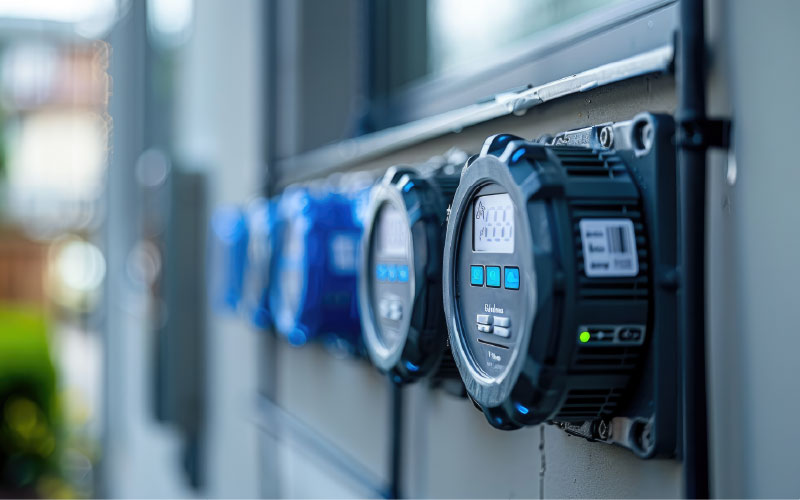On March 11th, COVID-19, also known as coronavirus or corona, was recognized as a pandemic, which means its spread will be global and it’s here to stay. Some countries are already going into a national state of emergency, and many others will most likely follow their lead. It is clear that the recession is inevitable. According to the Twitter user @MacroCharts’ research, the world’s market faces an all-time panic, which will likely trump even the 2008 crisis.
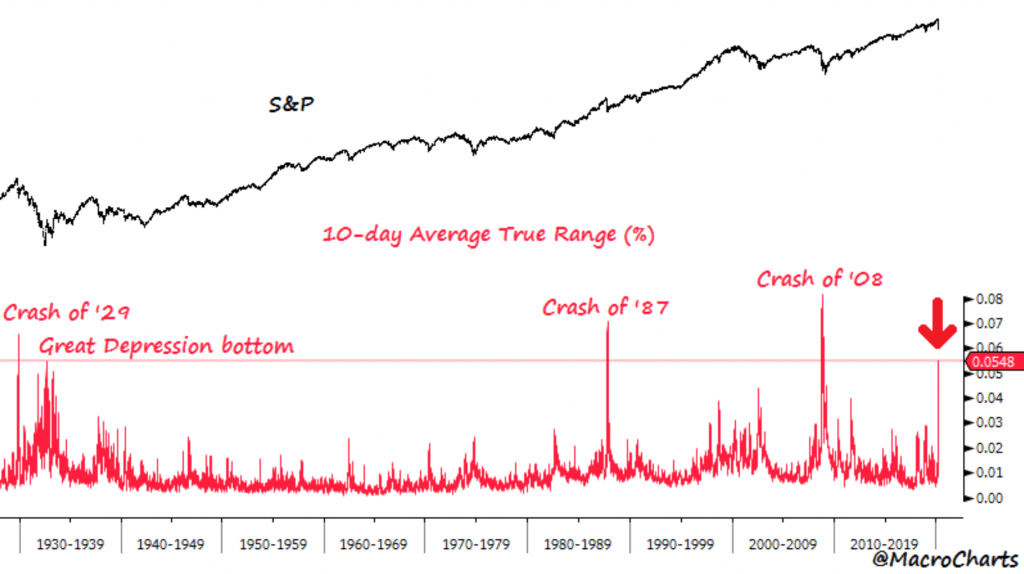
Governments are bracing themselves for the impact, and all the economic and social life undergoes restructuring. Airlines are taking the hardest hit (which is already worse than post-9/11 sales plunge.) Oil prices are unstable. Renewable energy projects are slowing down. Factories are putting the manufacturing on hold, therefore cutting energy consumption. Peak hours are changing due to millions working from home. With so many factors at play, it is hard to determine precisely, what effects the pandemic has on the utility service providers. However, we can still contemplate the most possible scenarios.
Utility Providers Have Social Responsibility
Department of Homeland Security says, “Power utilities and their assets are critical infrastructure.”
During the pandemic, it is crucial to keep the lights on and water running. No matter how late people are on payments, everyone has to be able to wash their hands and thoroughly cook food. Otherwise, we may see the number of cases soar dramatically, overwhelming the healthcare. Therefore, many providers have already suspended shut-offs or even resumed services for vulnerable households. Some of our clients, for example, have given such consumers a couple of options to avoid their need to commute for a top-up of their pay-as-you-go consumption.
Thus, there are two main difficulties for utility companies to overcome:
- The COVID-19 outbreak happened right in the middle of the oil price war between Saudi Arabia and Russia. The combination of these two factors sent the market down two times faster, with prices for energy resources cutting more than in half during the last month.
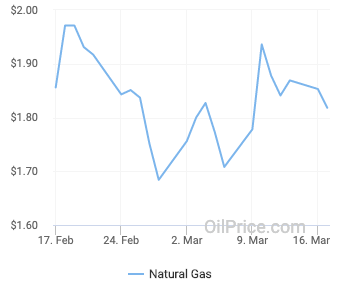
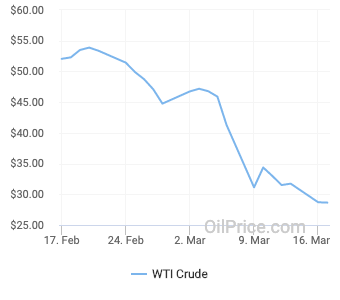

- It was estimated by the Edison Electric Institute (EEI) that nearly 40% of employees might be unable to work due to sickness or the fear of commuting.
Due to the described problems, each individual utility provider might not be able to supply its clients on its own. It means that most likely the utility sector will have a credit priority along with healthcare and food suppliers. Some utility service providers will have no choice but to join forces to keep the grid stable.
The implications of such measures could cause major changes in internal calculations and billing procedures, as more factors would have to be taken into account. As a long-term and reliable solution provider, MaxBill is always here to support clients through tough times. Our billing and CRM provides a safe and stable environment, that can incorporate as many partners and tenants as needed. Moreover, its cloud-based nature allows access from anywhere, so migrating employees to home offices can be less stressful and easier.
The Emerging Remote Work Culture Is Affecting the Grid
Since March 10, 2020, more and more countries are taking harsh quarantine measures. In Italy alone, a nation-wide lockdown will affect sixty million people, many of whom are living paycheck to paycheck and cannot afford to take unpaid sick leave. According to the Glassdoor research, 36% of recent reviews mention the possibility of working from home or taking paid sick leave. Companies that have implemented policies, enabling staff to take paid time off or be digitally present, get mostly positive feedback. In South Korea, 61% of large firms and 51% of medium-sized ones support their staff’s decision to work from home. In Poland, roughly 40% of the companies have encouraged their employees to work remotely, while in Japan the percentage is twice as high – 82%, as revealed by Statista Research Department.
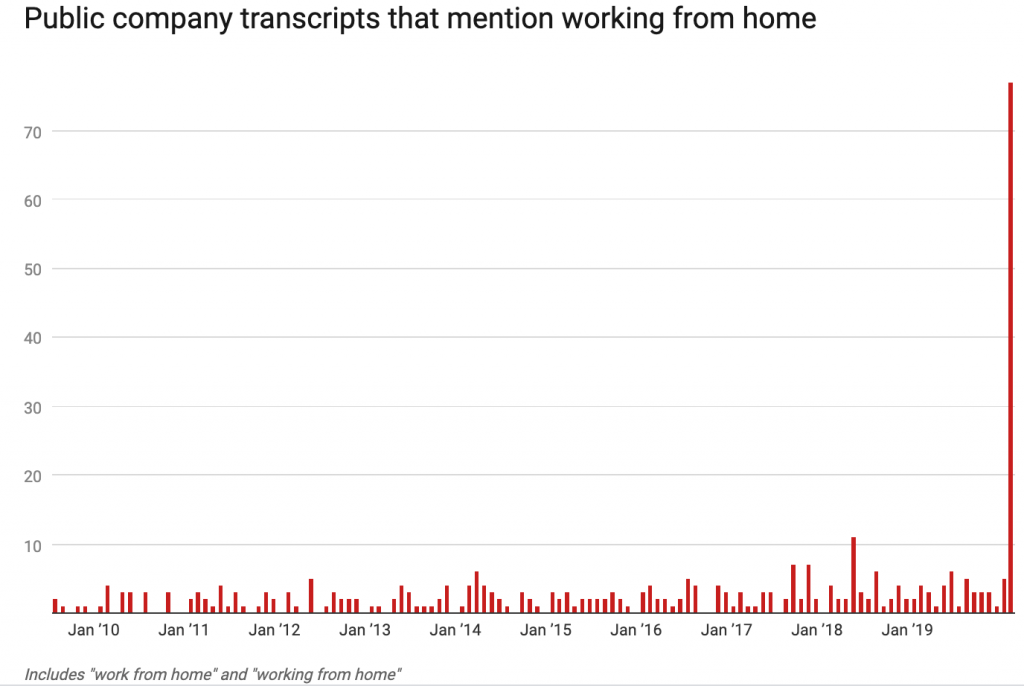
With people staying home and running home offices, we’re sure to see the shift in the distribution of the peak hours. Currently, it is still considered to be “winter” (till April 30), and peak hours are expected to shift from 6 AM—10 AM to 7 AM—11 AM and from 5 PM–8 PM to 6 PM—10 PM. The curve is also expected to get more flat, as each household will distribute the usage more evenly. The load on the grid as a whole will also be lower, as hubs, cafes and business centres won’t be the primary consumers as they used to be before the virus outbreak. Instead, they would be replaced by apartment buildings and stand-alone houses.
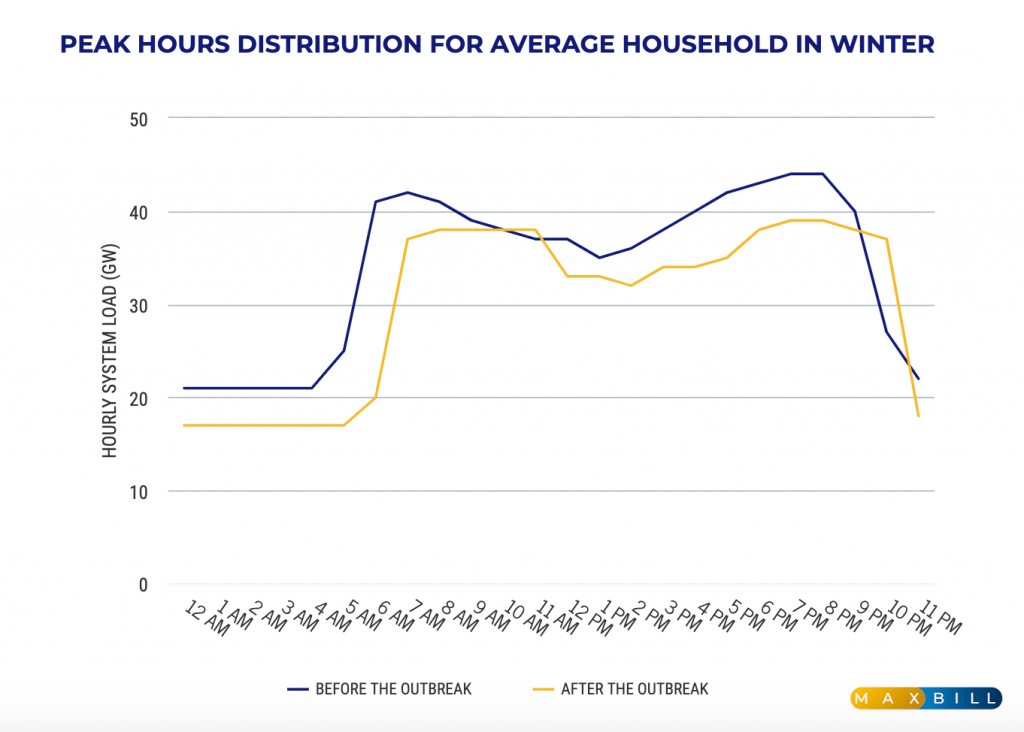
Many households use smart meters and pay according to tariffs that were developed taking into consideration average peak hours and energy consumption. Since the above-mentioned shift, it is important for the provider to gather all of the data carefully and compile the invoices for users in a fair way, making sure they are calculated correctly with new consumption patterns. It is a hard and time-consuming task if done manually, especially in the light of staff shortage due to coronavirus pandemic. Companies, that don’t have reporting, billing and invoicing processes automated, will likely to issue invoices late and with errors.
The MaxBill team understands the difficulties that utility providers face and strives to lighten the load. In order to help our clients during the hard times, we made sure, that our solution simplifies their billing routines. The particularly useful features include:
- automated processing of the input data and compiling it into a detailed invoice, preventing any human-factor mistakes;
- option to change the tariff for each consumer easily;
- adjustable notification schedule;
- automated send-out of the invoices.
By using our software to its full potential, our clients can let go of some repeated processes and focus on more vital tasks at hand.
Final Thoughts
The utility service providers are expected to take less beating than many others because their financing is prioritized just like the health services and food supply. The estimated percentage point change in the utility sector is around -1.5%, according to Statista, if we’re taking China experience into account. Even so, the utility providers must prepare in advance in order to soften the blow from the likely global recession caused by oil price wars intensified by the virus and the panic surrounding it.
Collaboration and innovation will help us through the pandemic and the following crisis.
First and foremost, during the times of uncertainty don’t be afraid to work with your competitors. Utility companies must form a team to keep the power on across the country, as it’s not only about the business now. We’re all in the same boat now, so to stay afloat we must join our forces and learn from each other (for example, by sharing and exchanging guidelines and best practices.)
Second, it is more important than ever to establish strict discipline. It is vital to determine the necessary operations that cannot be postponed, automated or suspended. Then, most of the resources should be dedicated to supporting said operations by using the established billing routines and CRM. Back-up plans have to be developed in case the situation worsens.
And last but not least, never forget to take care of your employees. Allow as many people to work from home as you can. Make your facilities into secure shelters for those, who are obliged to come to work. Monitor staff health closely and provide all the necessary updated information.
We can win the war with the virus by remaining calm, rational and positive. Challenging times show us the place for improvement and bring us together. Doesn’t matter whether your company is large or small – your business will benefit if you optimize the internal processes, team up with other players in your field of expertise and support your clients and employees. As they say: “A bond forged by fire is never broken.”


























